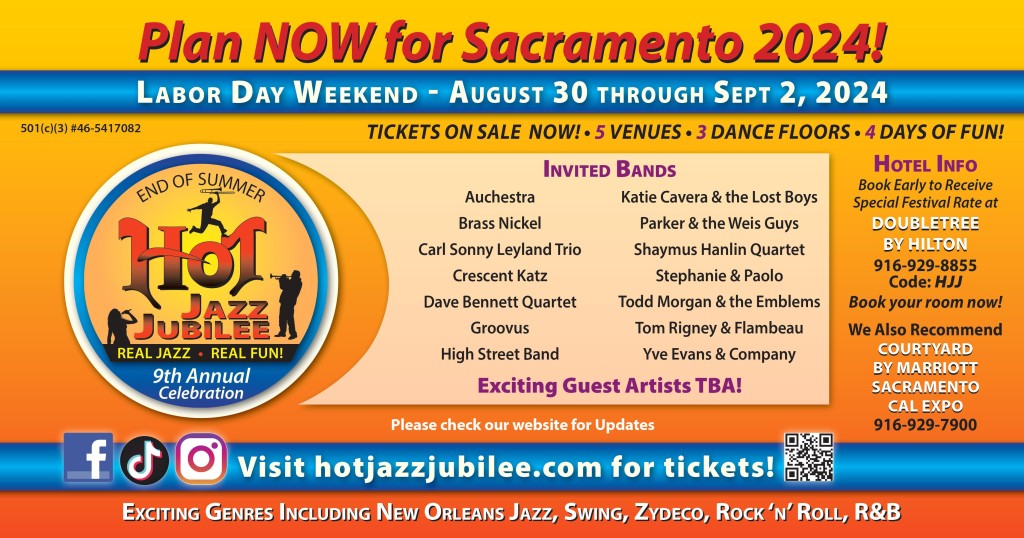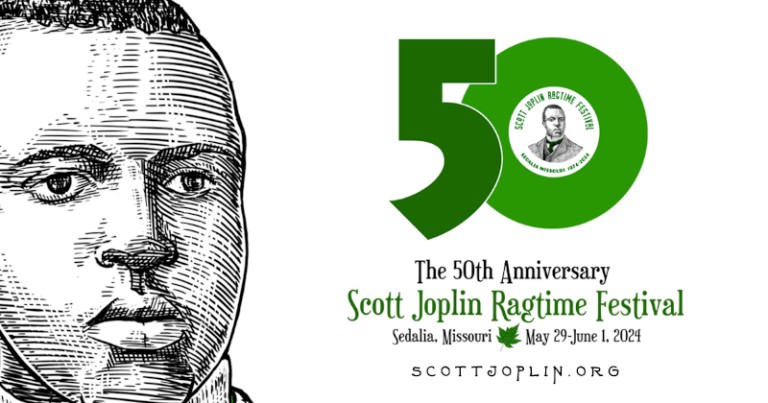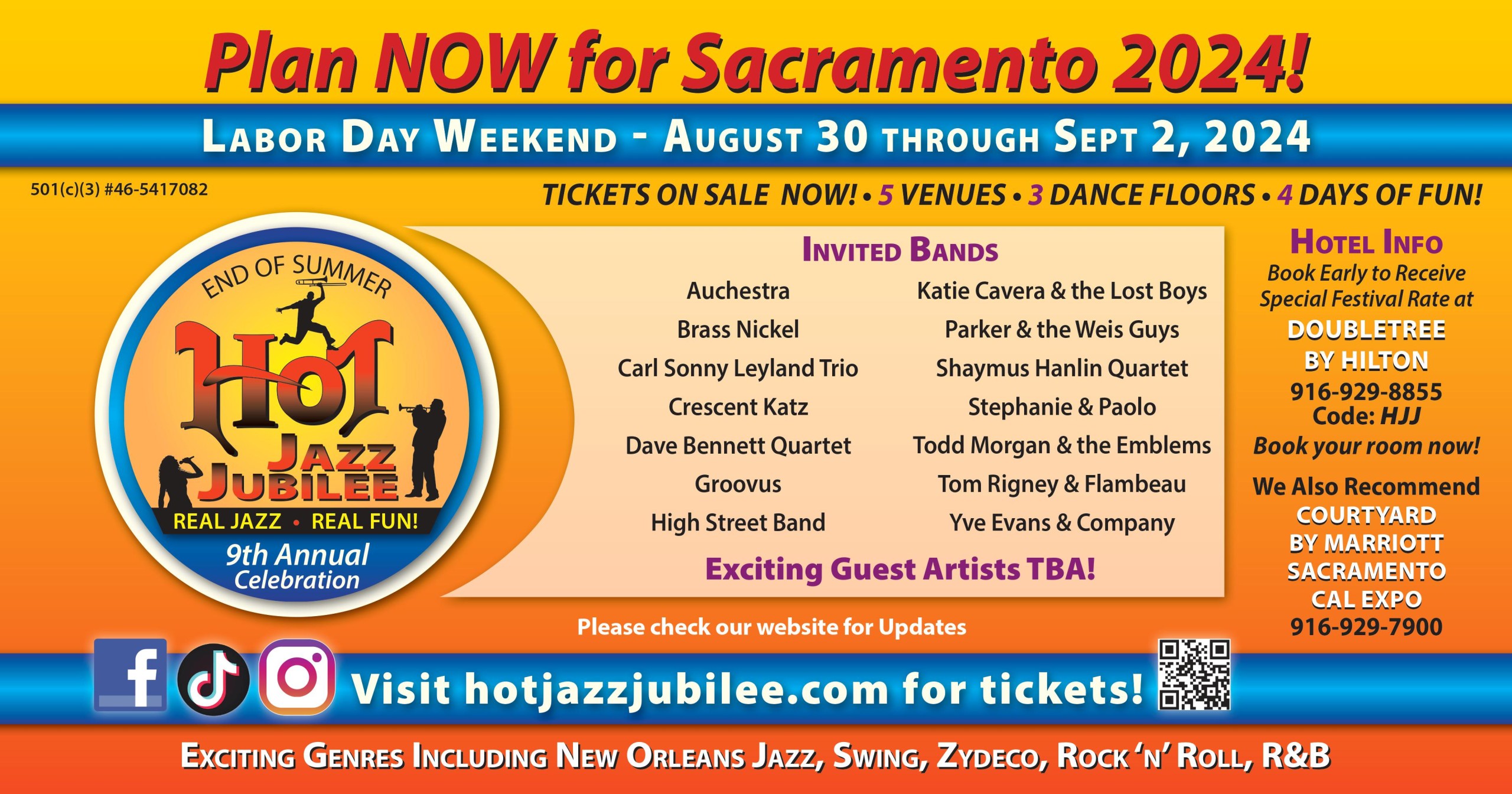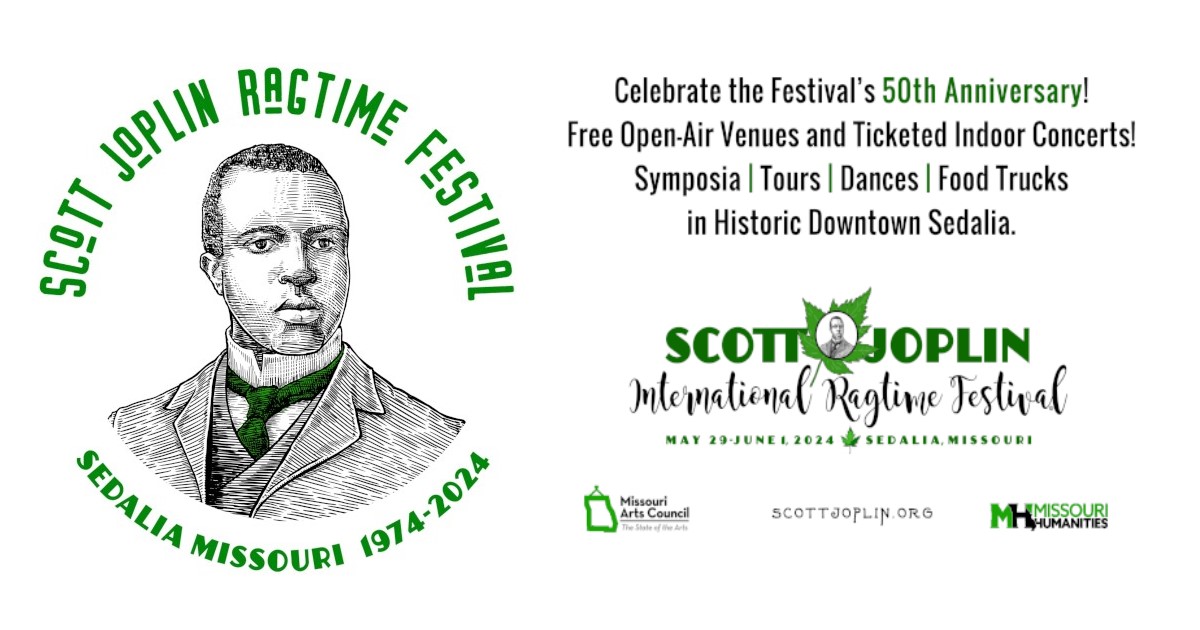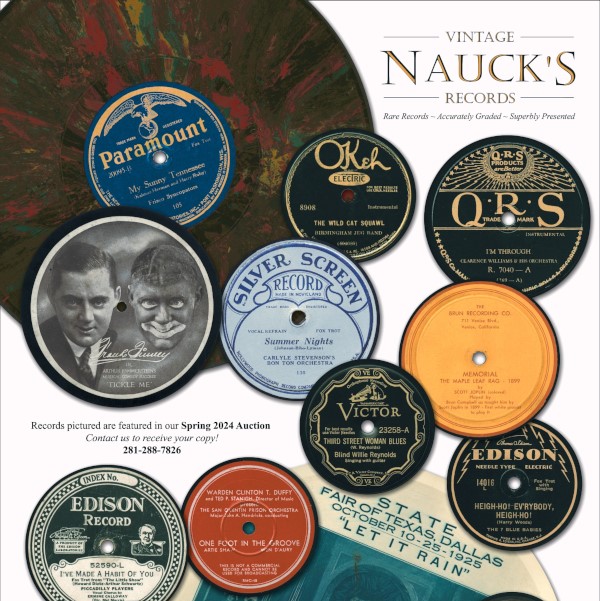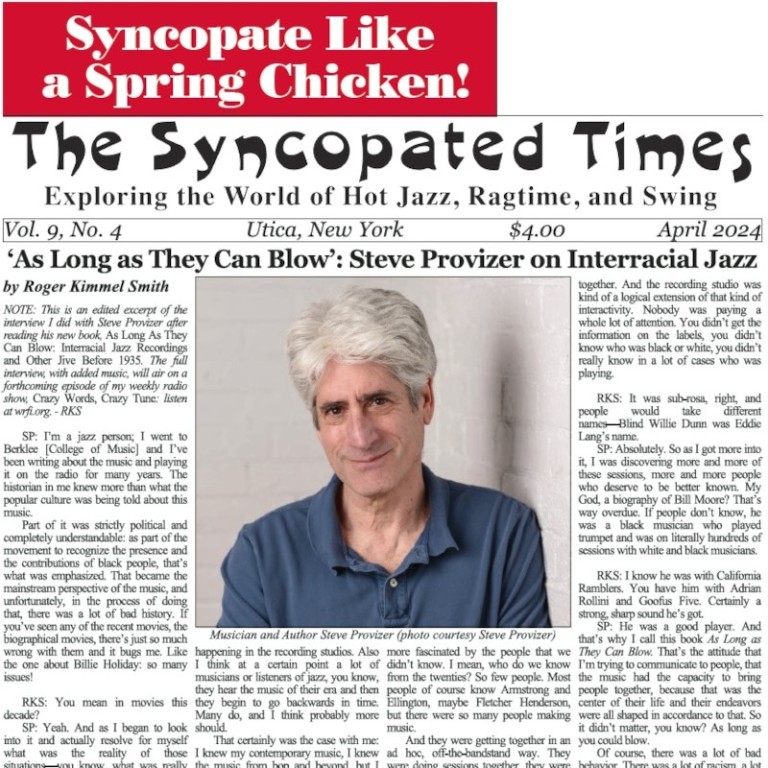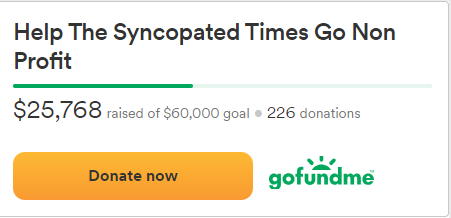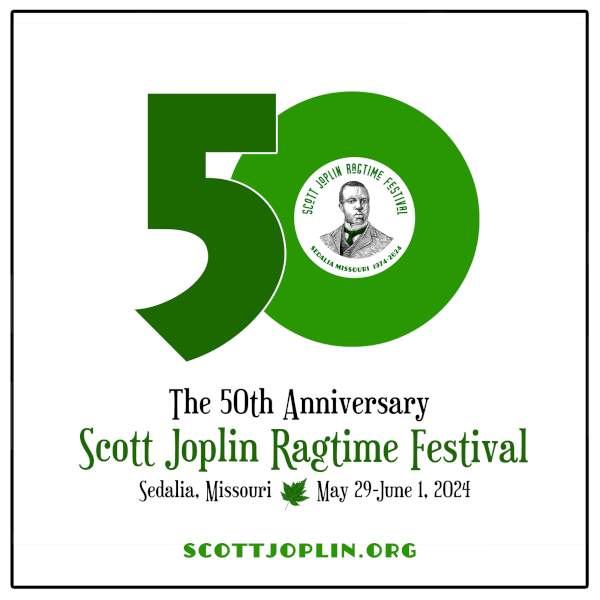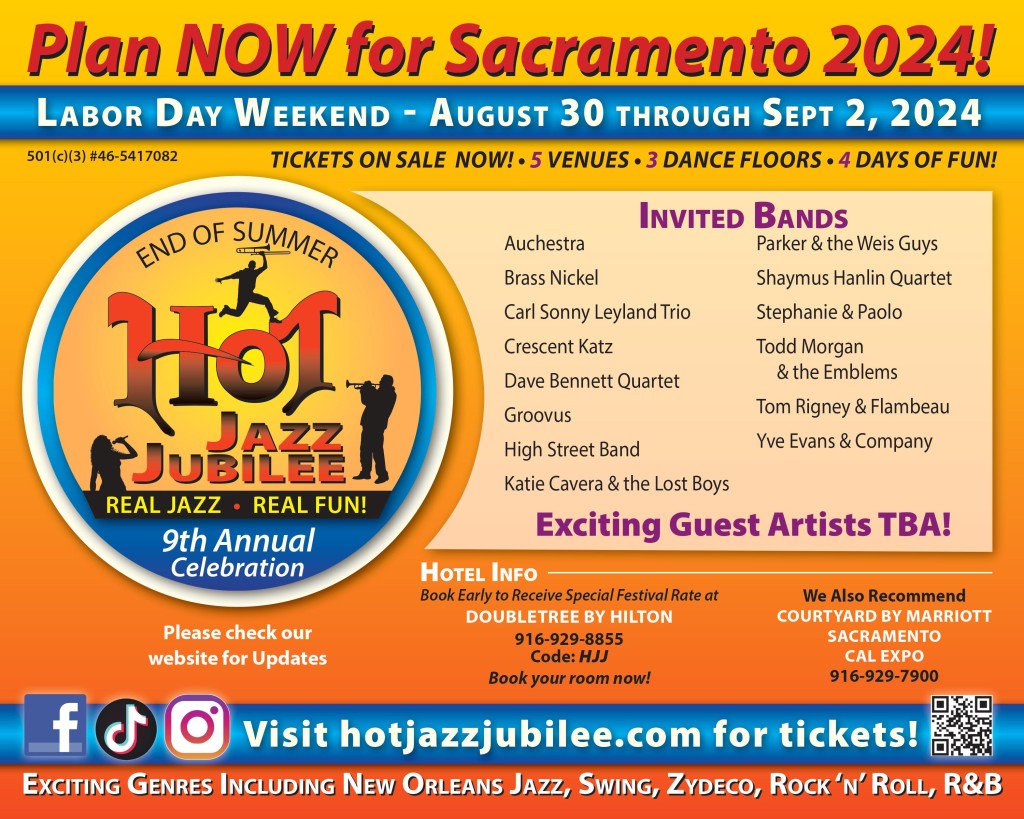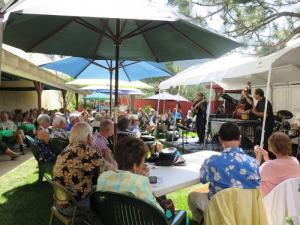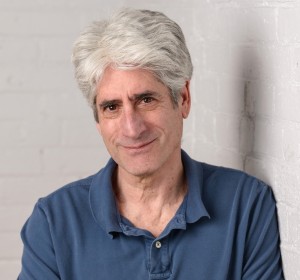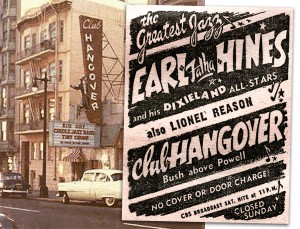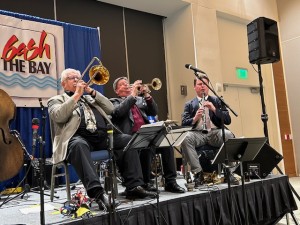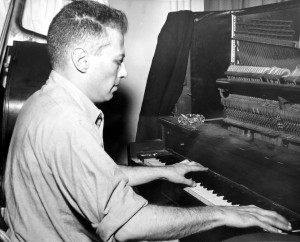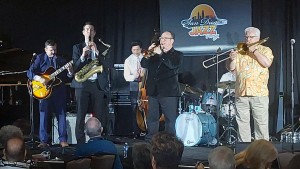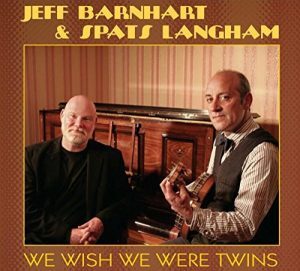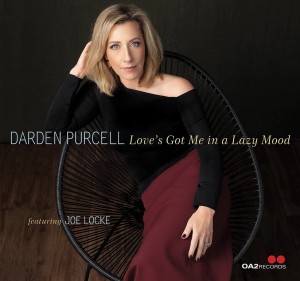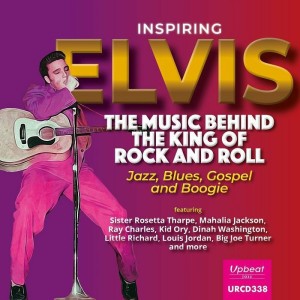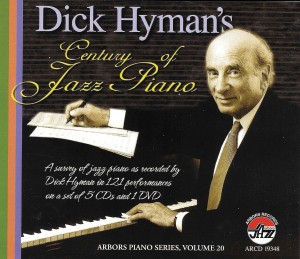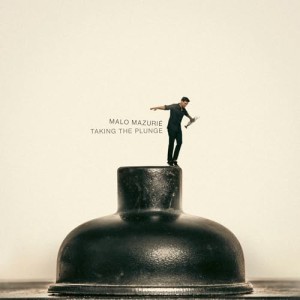A highly-respected performer in all areas of jazz from traditional to avant-garde, Scott Robinson has established his own unique musical voice, which was described in a Northsea Jazz Festival program as “combining a solid foundation with great daring.” The headline in a Wall Street Journal article written by Will Friedwald tabbed him “Jazz Futurist, Mad Scientist.”
“What planet did this guy come from?” is how Benny Goodman reacted when he heard legendary cornetist Bix Beiderbecke for the first time. Trumpeter Randy Sandke has been known to use the same line to introduce Scott. As Will Friedwald pointed out in his WSJ article, “There’s no one else doing anything close to what Mr. Robinson is doing: playing every style that exists in the jazz world, on almost every horn known to man, and even some rhythm instruments.”
Primarily a tenor saxophonist (he ranked second after Sonny Rollins in a Downbeat poll), Scott is considered one of today’s most wide-ranging instrumentalists. He has been heard on tenor sax with Buck Clayton‘s All-Stars, the Mingus Big Band or Jon-Erik Kellso‘s EarRegulars, on trumpet with Lionel Hampton’s quintet, on alto clarinet with Paquito D’Rivera’s clarinet quartet, on bass sax with the New York City Opera, and in an outer space jam session with musicians from the Sun Ra Arkestra where he’ll bring out some of his really far-out horns from his collection of unusual and obscure instruments. For example, he owns and records with a vintage contrabass saxophone, so rare that fewer than 20 are known to exist, not all of which are in playable condition.
A busy traveler, Scott has performed in more than 40 countries, once touring five continents in a three-month period. He has performed at U.S. presidential inaugurals, for the King of Thailand, and in such diverse and prestigious venues as Carnegie Hall, the Village Vanguard, Library of Congress and the Vienna Opera House. His band, The Doctette, an outfit inspired by the 1930s and ’40 pulp-fiction character Doc Savage, has played at the Newport Jazz Festival.
His many works as a composer cover a wide range, from solo performance pieces, jazz tunes, chamber works on up to large-scale compositions for wind bands and symphony orchestras.
The son of a piano teacher and a writer-editor for National Geographic books, Scott grew up in an 18th century farmhouse in Virginia. While in high school, he received the Louis Armstrong Award and Best Soloist Award from the National Association of Jazz Educators. He graduated from the Berklee College of Music in 1981, and the next year, joined the College’s staff, becoming the youngest faculty member at the age of 22.
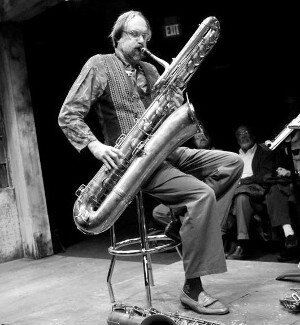 He has been recorded on more than 250 LP and CD releases, including 17 under his leadership. He’s on four recordings that won Grammy Awards and has received four fellowships from the National Endowment for the Arts.
He has been recorded on more than 250 LP and CD releases, including 17 under his leadership. He’s on four recordings that won Grammy Awards and has received four fellowships from the National Endowment for the Arts.
In 2000, the U.S. State Department named Robinson a “Jazz Ambassador” and funded a 2001 tour of West Africa that covered 11 countries where he played the early works of Louis Armstrong. Arbors Records subsequently released an album of material from these appearances: Jazz Ambassador: Scott Robinson Plays the Compositions of Louis Armstrong.
Scott has constructed a studio/laboratory (“The Temple of Sound”) for sonic research and creating recordings for the “Worlds of Tomorrow through Sound.” ScienSonic Laboratories, which is reportedly guarded by Scott’s pet rabbit, has been recognized by the Space Foundation for its Certified Space Imagination Products. His albums carry a sticker proclaiming: “WARNING: This music takes place in another world. Conditions may be hazardous.”
Again quoting Will Friedwald, “Mr. Robinson’s ‘laboratory’ is a converted garage behind his home in Teaneck, New Jersey where he stores his working instruments. Thousands of additional parts and incomplete horns are stashed in his basement.”
“Lanky, bearded and bespectacled, Mr. Robinson plays up the idea of looking and acting like a mad scientist of jazz. He has a custom lab coat that he wears to his own gigs and hands out specially-made test tubes as souvenirs. Although comfortable in the jazz past, his ScienSonic projects are distinctly futuristic and avante-garde, starting with the album covers which use paintings from 1950s science-fiction paperbacks by the late Richard Powers.”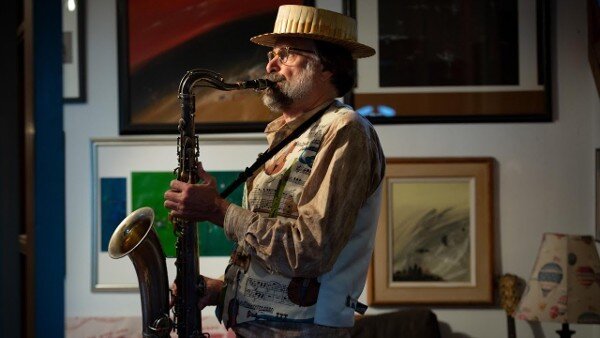
Scott acknowledges that “the music we do for ScienSonic is unabashedly, unapologetically forward-thinking. It’s not for everyone – but it’s for anyone. I try to keep a balance in my life. I still love to play beautiful melodies, old tunes, ballads. I never want to be so far out that I can’t play Stardust.”
Scott’s older brother and fellow musician Dave may say it best: “He’s a genius. He plays the entire spectrum of jazz from trad to free-improv with equal mastery, and he plays all the reeds and all the brass superbly (not to mention theremin and other non-wind instruments). He’s an adventurous soul who invests all of himself in every musical situation. He’s also quite an intellectual, yet he’s never outgrown his childhood sense of wonder and humor. And he has created an astonishing body of original compositions, from jazz tunes to symphonic works. I love him dearly, and I can’t believe he’s my brother!”
